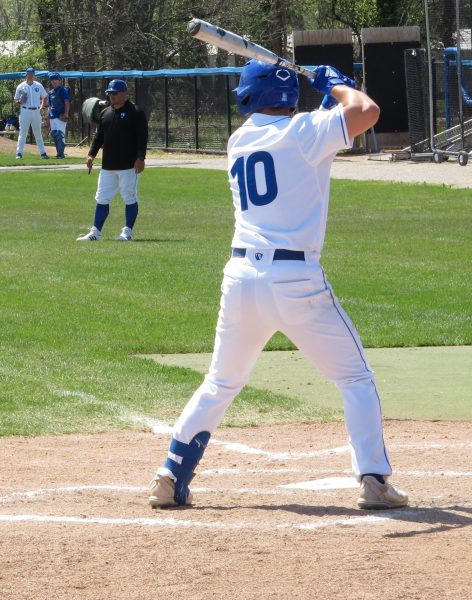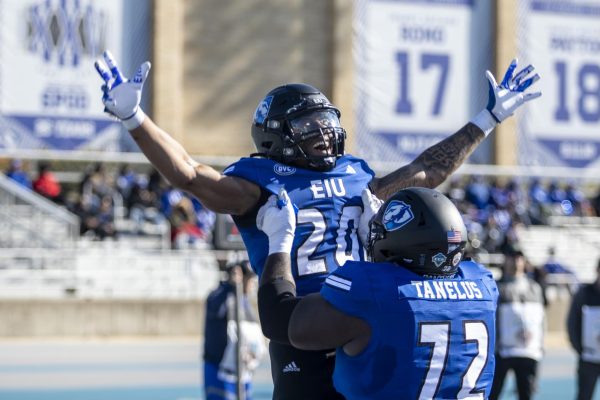Making decisions off the field
Coaches and players deal with each other on a daily basis, and over that time it is easy for the coach to influence their athletes about the way they play their sport and how they deal with issues in the classroom.
The difficult part for many coaches, when they have such an authority over how their kids think, is to be beneficial in certain areas while not invading the players’ personal decisions.
One item that falls under that category is the upcoming election and how each player may view the various races for political position. While coaches may talk to their players and joke around about it, many of those leading teams at Eastern refrain from talking about it too in depth because they want their players to make those kind of decisions on their own.
“I haven’t personally discussed it with anyone,” Eastern football coach Bob Spoo said. “I’m afraid it’s just something that creeps up on us as a coach. We are so focused on the season and what we have to do it becomes hard to find the time to pay as close attention to the election as we would have liked.”
That didn’t stop Spoo from realizing just how important this election has become considering that even with as little time as he may have it is nearly impossible to find seclusion from the hype that surrounds the Bush vs. Kerry race this year.
The coach already has sent in his vote, because along with many others, he chose to vote with an absentee ballot.
“I was able to spend some time this year catching up on all the issues, and I applied and sent in my absentee ballot,” Spoo said. “I went round and round for a long time about who to vote for, as many people seem to be doing, and because of the circumstances I just tried to vote my consciousness.”
That one idea, the ability to vote one’s consciousness, is what many coach’s stress to their players. They hope that as their athletes grow and develop as college students, they begin to form and base their opinions on what they are learning.
To do so, some coaches joke around about it but others just steer clear of the situation all together.
“We have a heavily democratic team, and I personally, fall to the other side so I got beat up when we joked around about it,” said Steve Ballard, the women’s soccer coach at Eastern. “But it is a serious decision that is a matter of their personal life that I do not want to influence.”
Players themselves, understand the situations and may even have more time than their coaches to pay attentions to what is going on in the world.
Eastern’s senior middle linebacker Jamarr Day finds time on his own and during the team’s road trips to watch what he can on the issues and the race for president.
While the linebacker has had little time, considering it is his first year as a full-time starter in the linebacking core for Eastern, he still takes pride in the sense that he is taking part in a historic election.
“I’ve had time, basically, to just watch the debates and I’ve watched all three,” Day said. “We caught one on a road trip, and it sparked a lot of talking between us all, but I’ve watched the other two also.
“Right now I look first and foremost at the war. I just don’t agree with the fighting being done over there; I don’t know anybody who was sent over but I just don’t like to look and see what is really happening.”
The spark that the war in Iraq has created amongst many of the nation’s youth is what the coaches and players have brought to the practice field and the team meetings that make up most of the players’ and coaches’ day.
“There are definitely a couple of kids, campaign kids I call them, who are the ones who like to talk about it,” Bellantoni said. “We, as coaches, just stay away from telling them what to think. That’s their department.”












































